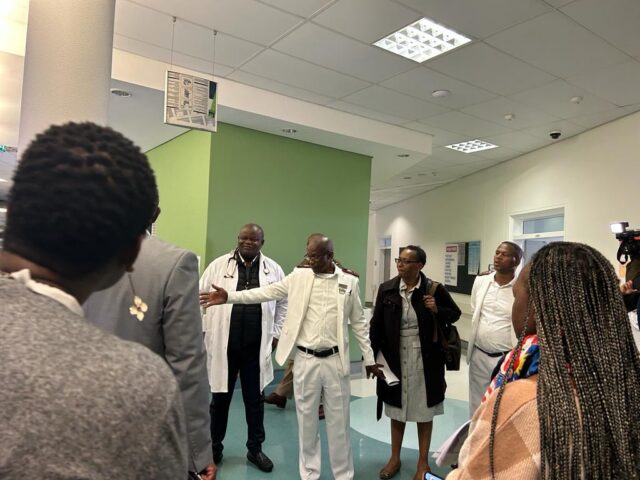Yesterday, the Free State province hosted the Integrated Public Service Month Webinar, focusing on health reform recommendations in five dimensions: citizen-centeredness, organisational capability, accessibility management, service delivery improvement performance, and operations management.
The recommendations arise from the study into the challenges in the national healthcare system and the Free State province, which the Department of Public Service and Administration (DPSA) undertook in partnership with the Free State Department of Health (FSDoH) and the University of the Free State (UFS).
Presenting the findings of the national “State of Public Service Delivery: A Citizen-Centred Assessment” study on the health, safety and security, rural development, and land reform sectors, the DPSA’s Director Capability and Productivity Measurements, Mr. Ismael Davids, stated that while the country’s public policies are rooted in citizen-centricity by design, dating back to the 1997 White Paper on the Transformation of the Public Service, also known as the Batho Pele White Paper, however, as Mr. Davids pointed out, there is an equally important need for defining and analysing the macro-environment when developing and implementing service delivery policies.
“As practitioners of public administration and officials responsible for service delivery, we tend to focus on the micro-environment of the departments within which we work or the meso-environment, which relates to the sector within which we find ourselves; we rarely, as public servants working directly with citizens, focus on the macro and external environments and how this impacts our ability to provide quality services to our citizens,” he observed.
Consequently, the State of Public Service Delivery study sought to frame the assessment of the extent to which government policies are centred towards citizens by considering economic, technological, and social factors, among others, that impede service delivery, Mr. Davids explained.
According to Mr. Davids, the study also assessed the efficacy of a range of service delivery instruments and mechanisms that have been used in the public service for decades, from policies to mechanisms such as mandatory service delivery improvement plans and other building blocks of the Public Service Operational Management Framework, using the Organisational Functionality Assessment and Productivity Assessment Tools.
In the other provinces, the study focused on a limited number of dimensions but comprehensively assessed the entire value chain of the provincial health system in the Free State province. The macro-level health data from the Free State province indicated that only 4% of the provincial population had private medical health insurance, compared to 14.9% nationally, which is illustrative of the dire need for health services in the province, according to the DPSA’s deputy director within the Capability and Productivity Measurements unit, Mr. Manaseh Tshiguvho, who presented on behalf of the UFS and FS DoH research partners.
The provincial study specifically sampled government healthcare workers and interviewed community healthcare representatives of hospital boards and clinic committees in four provincial districts. For example, in Dimensions 1 and 3: Efficacy of Citizen-Centred Strategies in Public Service, the questions directed at public health care workers indicated that 55.5% of those sampled agreed with the statement that health facilities complied with the national guidelines on ensuring reasonable access to services by communities in terms of distance. However, a significant 89.4% of the health workers disagreed with the statement that citizen-centred strategies were aligned with service delivery improvement mechanisms, such as service delivery improvement plans (SDIPs).
According to Mr. Tshiguvho’s presentation, 74% of the community representatives or members agreed with the statement that clinics or hospitals were citizen-focused, gauging the quality of service delivery, work ethics, shortage of staff, and infrastructure.
As a way forward, the study recommended the following:
• Further research is required to assess the views of public health service users; citizen voices need to be heard.
• The need to develop ideas to integrate public health services across three spheres of government and not work in silos.
• The citizen-centeredness of public health services should be assessed regularly, suggesting an assessment should be every 3–5 years.
• Government and academia should build more collaborative partnerships to inform strategies and mechanisms to improve citizen-centeredness in public health service delivery.
The Acting Premier of the Free State Province, Ms. Maqueen Joyce Letsoha-Mathae, and the MEC for Health, Ms. Nokwanje Selina Leeto, welcomed the research presentation and the recommendations. In addition to high-ranking government officials, the webinar was also attended by the Deputy Minister for the Public Service and Administration, Dr. Chana Pilane-Majake, who delivered a keynote speech.









